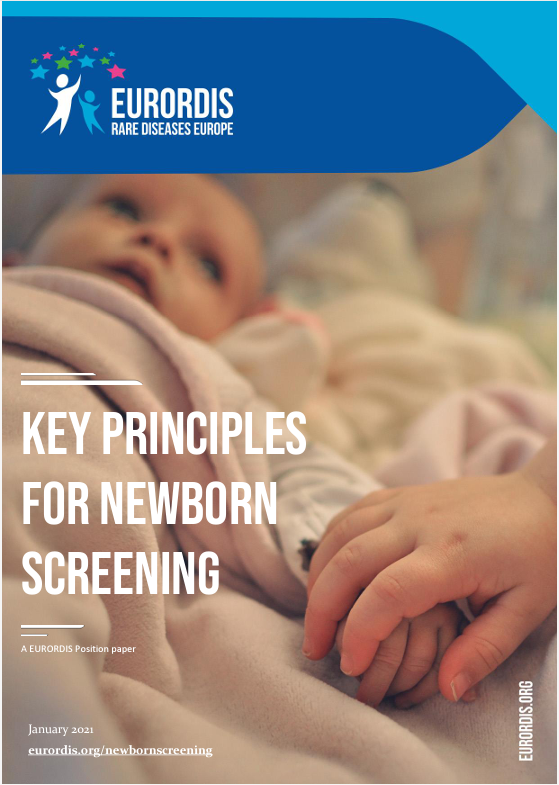Key principles for newborn screening

Newborn screening is the process of systematically testing newborns just after birth for certain treatable diseases. Ideally, this practice is part of a larger programme that includes confirmatory diagnosis, immediate care, treatment and follow-up.
Early diagnosis leads to a better life for people living with a rare disease. Newborn screening is a way to provide this: families are able to plan better for their child’s care and treatment, and make informed decisions about future pregnancies. In many cases, this early intervention prevents severe disabilities from developing and can save lives.
Yet across Europe today there are significant discrepancies between the policies and programmes for Newborn Screening.
For the first time, EURORDIS, alongside its Council of National Alliances, Council of European Federations and its members, have set out 11 Key Principles to support an harmonised European approach to Newborn Screening. The vast inequalities across Europe, coupled with technological and scientific advances highlight the urgent need to move forward from the status quo.
We are calling on European Union institutions and Member States to adopt these Key Principles to guarantee the human right of achieving the highest standard of health for all newborns.
Downloads
- Newborn Screening Paper in English (English)
- Newborn Screening Paper in Czech (Czech)
- Newborn Screening Paper in French (French)
- Newborn Screening Paper in Georgian (Georgian)
- Newborn Screening Paper in German (German)
- Newborn Screening Paper in Greek (Greek)
- Newborn Screening Paper in Italian (Italian)
- Newborn Screening Paper in Macedonian (Macedonian)
- Newborn Screening Paper in Polish (Polish)
- Newborn Screening Paper in Portuguese (Portuguese)
- Newborn Screening Paper in Serbian (Serbian)
- Newborn Screening Paper in Slovenian (Slovenian)
- Newborn Screening Paper in Spanish (Spanish)
- Newborn Screening Paper in Turkish (Turkish)
